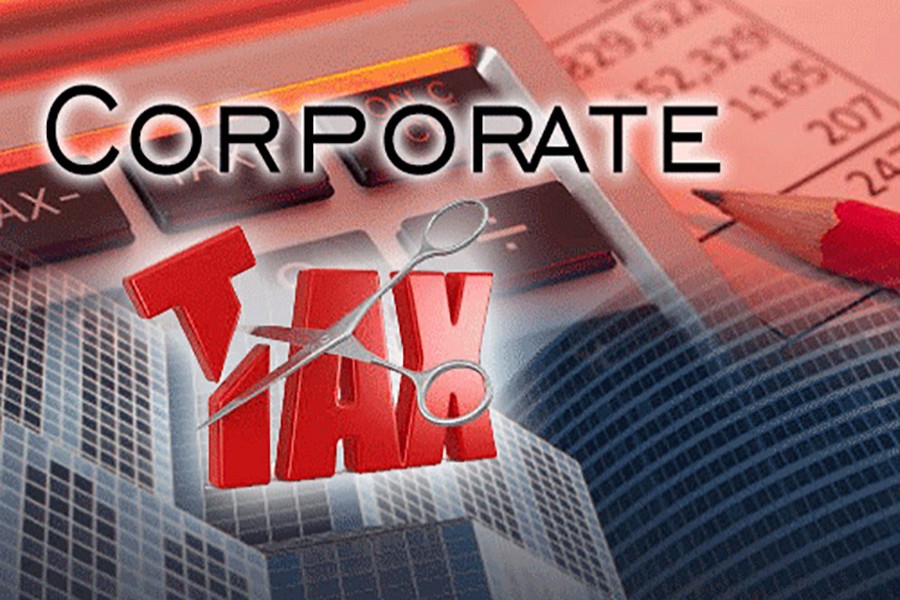Foreign investors have proposed the National Board of Revenue (NBR) to devise a plan to cut corporate tax rates gradually and expand the tax net over the next five years.
The members of the Foreign Investors Chamber of Commerce and Industry (FICCI) proposed to align the rate of corporate tax with those of competing economies such as Vietnam, Pakistan and Sri Lanka while keeping the rate stable for a reasonable period of time.
"We don't want any radical reduction in corporate tax rates. A five-year plan can be devised to bring down the tax rates," FICCI president Shehzad Munim said .
He placed the proposal at a pre-budget meeting with the revenue board on Monday.
Board chairman Md Mosharraf Hossain Bhuiyan chaired the meeting-part of its exercise to prepare budget for Fiscal Year 2018-19.
Abdul Khalek, convener of trade, tariff, taxation and company affairs sub-committee of the FICCI, proposed lowering the existing corporate tax rate by 5.0 per cent for both listed and non-listed companies in the upcoming budget.
He said the effective tax rate for the companies increases by four to five per cent after assessment due to disallowances of many claimed expenditures by the taxmen.
Corporate tax rate for listed companies is currently 25 per cent while it is 35 per cent for non-listed companies. But banks, insurance, financial institutions pay higher corporate tax at a rate of 42.5 per cent.
FICCI members also sought different tax rates for offshore and on-shore companies.
They said tax rates for the offshore units in other Asia Pacific countries are set at preferential rates ranging from zero to 20 per cent.
The FICCI members also suggested incorporating the prospective provisions of the new VAT law, into the existing VAT law of 1991. The government has deferred the execution of new VAT for two years after opposition from lawmakers and businesspeople.
After the budget proposals, the NBR chairman said the revenue board would try to incorporate some of the provisions of the new VAT law into the existing legislation, which should not affect businesses.
He assured foreign investors of addressing the issue of multilayer dividend to help avoid double taxation, not to harass taxpayers for achieving higher revenue target and focus on the untapped sector for mobilizing taxes.
The FICCI also proposed to reintroduce the tax benefit, allowing at least 1.0 per cent of the banks' provisioning as expenditure, which the tax-collecting authority maintained until fiscal year 2006-07.
In his response to the proposal, the board chairman said the re-introduction of the measure could act as encouragement to loan defaulters. The FICCI proposed that any changes in the budgetary measures should be considered applicable prospectively instead of the existing retrospective effect.
Mr Khalek said after finalisation and passage of accounts by the shareholders in the annual general meeting and the payment of dividend, such retrospective effect of tax measures distorts the whole system.
He also proposed to consider double taxation avoidance agreements on the deduction of tax from income of non-residents.
Other proposals of the lobbyist group include the lifting of minimum tax provision regardless of profit and loss, and the withdrawal of the provision of deduction of tax at source at a rate of 5.0 per cent on different retirement benefits including provident, gratuity and superannuation funds. They also sought tax exemption from workers' profit participation fund, which has been waived under labour law-2006.
The board boss assured the lobbyist group of rationalizing these.
The FICCI member also proposed increasing the tax-free ceiling of wealth surcharge to Tk 50 million from the exiting Tk 25 million, withdrawing the provision of payment of 10 per cent tax for lodging appeal, lifting supplementary duty on locally-manufactured goods and check over the valuation of materials in the customs ports.
The NBR chairman said that the board has instructed the ports to ensure similar types of assessment on the determination of transaction valuation to avoid discrimination.
Customs policy member Feroz Shah Alam said that the wing has found some evidences of showing false valuation of imported products.
"We've discovered that some companies show half of the actual import value to the customs authority. The minimum value of imported products would be determined on product-specific instead of existing country-specific," he said.The amendments would be made by April 30 next, he said.


